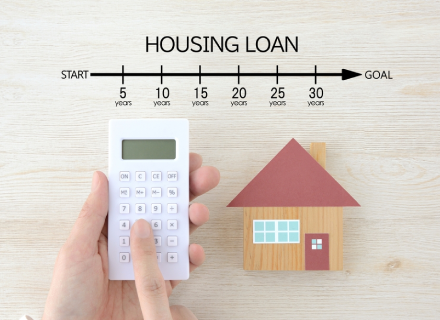Taking out a house loan is a major financial decision that can impact your life for years to come. Whether you’re a first-time homebuyer or looking to refinance, navigating the world of home loans can be complex. To help you make informed decisions and secure the best possible deal, here are seven essential tips to follow when taking out a house loan:
Understand your credit score
Your credit score is a key factor that lenders use to determine your eligibility for a loan and the interest rate you’ll be offered. Before applying for a mortgage, check your credit score and obtain a copy of your credit report. Address any issues that may negatively affect your score, such as unpaid debts or errors in your report. A higher credit score typically means a lower interest rate and better loan terms.
Determine your budget
Before you start house hunting or apply for a loan, assess your financial situation to determine how much you can comfortably afford to borrow. Consider not only the mortgage payments but also property taxes, insurance, maintenance costs, and utilities. Use a mortgage calculator to estimate monthly payments and ensure they fit within your budget. It’s crucial to have a clear understanding of what you can afford to avoid financial strain in the future.
Shop around for lenders
Don’t settle for the first loan offer you receive. Different lenders may offer varying interest rates, fees, and loan terms. Shop around and compare offers from multiple lenders, including banks, credit unions, and online lenders. Pay attention to the annual percentage rate (APR), which includes both the interest rate and any fees. A lower APR can save you significant amounts over the life of the loan.
Get pre-approved
Obtaining a pre-approval letter from a lender before you start house hunting can give you a competitive edge and help you understand your borrowing power. Pre-approval involves a lender reviewing your financial situation, including your credit history, income, and assets, to determine how much they’re willing to lend you. This not only strengthens your position when making an offer but also helps you set realistic expectations for your home search.
Understand the loan terms
Mortgage loans come with a variety of terms and conditions. Familiarise yourself with key terms such as the interest rate, loan duration, and whether the rate is fixed or adjustable. A fixed-rate mortgage has a consistent interest rate and monthly payment, while an adjustable-rate mortgage (ARM) may offer lower initial rates but can fluctuate over time. Make sure you fully understand how these terms will impact your monthly payments and long-term financial plan.
Consider the total cost of the loan
When evaluating a loan offer, look beyond the monthly payment and consider the total cost over the life of the loan. This includes the principal amount, interest, and any fees or closing costs. Calculate how much you’ll pay in total and compare it with other loan offers. Sometimes a loan with a slightly higher interest rate but lower fees can be more cost-effective in the long run.
Prepare for additional costs
In addition to the mortgage payment, be prepared for other costs associated with buying a home. These can include closing costs (such as appraisal fees, title insurance, and lender fees), moving expenses, and home maintenance. Setting aside funds for these additional costs will help you avoid unexpected financial stress. Make sure to discuss with your lender what costs are included in your loan and what you’ll need to cover out-of-pocket.

